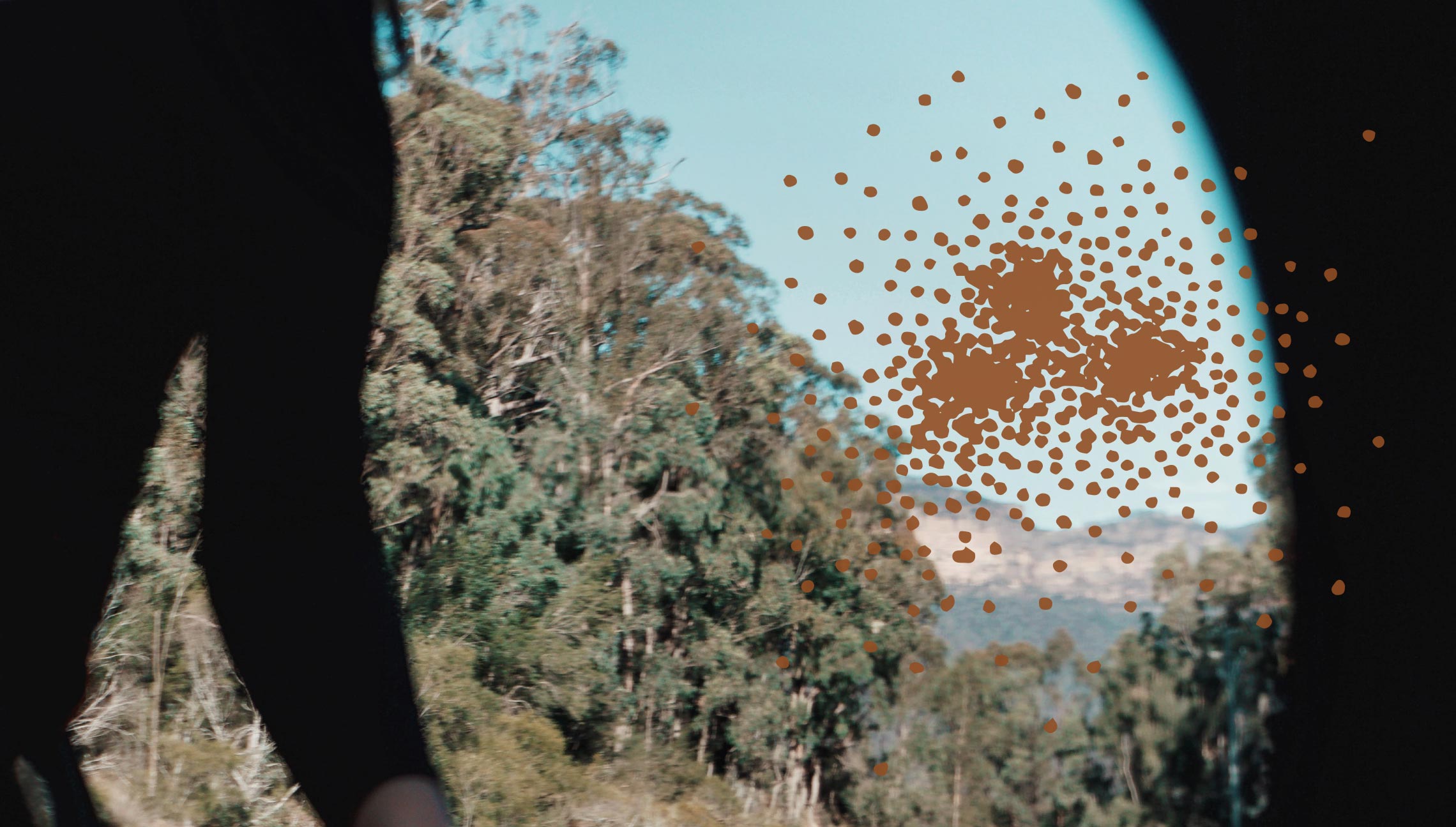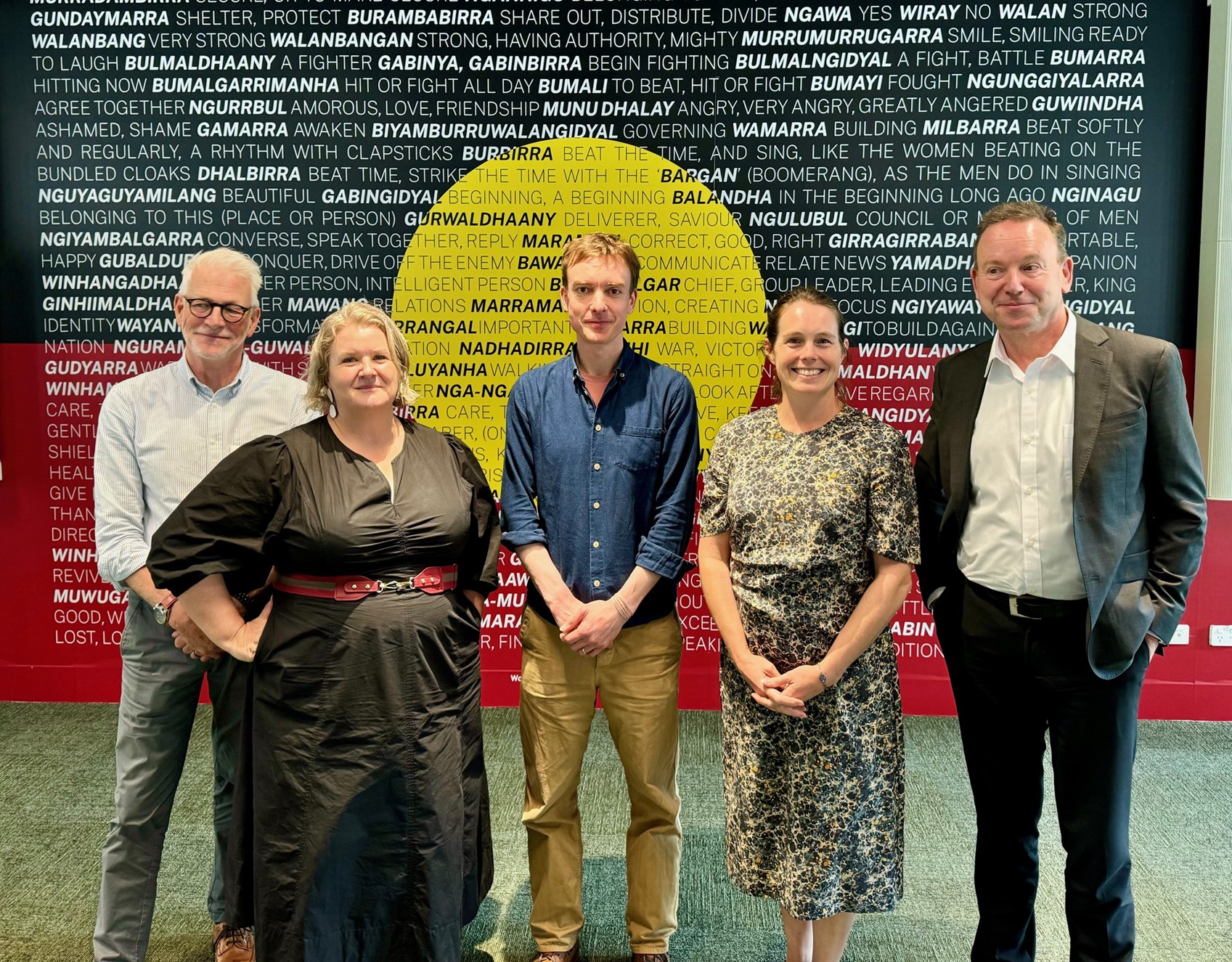“The universities have largely given up on their role of articulating 20, 30, 50-year options – whether talking about the care economy or the circular economy or daily life or family.” Sir Geoff Mulgan ANZSOG/ANU Visiting Fellow 19 March 2024.
In early 2024, ANZSOG, along with the Australian National University, hosted a workshop with visiting fellows, Sir Geoff Mulgan and James Plunkett. The theme of the day was Modern, Digital and Human; transitions and transformation in the way we govern and solve public problems. Public servants, policy experts and academics debated the direction of travel of government and society.
10 years ago, or even 5, much of the conversation would have centred around frameworks, theories of change, and structures of governance. But on this day, dialogue gravitated towards the individual in the system – as one participant put it, “let’s move the frameworks to the background and focus on how we behave.”
There was little mention of a lack of knowledge or information or even of good ideas. There was plenty of discussion about how we motivate people to act – and the challenges of risk aversion, feeling overwhelmed, black and white thinking, trust (or its absence), responsibility and mental health.
One participant summed up the need for systemic change and how we create the conditions for change, with the insight that “paradigmatic thinking doesn’t change the world, it just changes how we view the world.” Many voices contributed to the idea that the possibility for change comes down to the behaviour and actions of individuals and how we work together.
What emerged was a picture of public administration and public leadership that needs to create the conditions for the changes it wants to see. One of the visitors encouraged participants “rather than thinking we (government) need to do all the work, how can we orient to making it easier for the work to happen?”. There was a fruitful elaboration of what this might look like, including:
-
“What is government doing that is good? We spend a lot of time focusing on the failings which sometimes don’t help us move forward.”
-
“Let’s even ask the question ‘what do we mean by government?’”
-
“We are part of country, and country is part of us. Kin determines your responsibilities. How can we renew thinking about responsibilities?”
-
“We need to think about thinking - ‘how do we think?’ ‘What is good government decision-making?’”
-
“We need to create a culture where it is easy to be brave.”
As Sir Geoff said in an interview with ANZSOG later in the fellowship, “All of this [short-sighted thinking] has squeezed out the space for what I think is needed, which is thoughtful, detailed, coherent descriptions of where we might be heading. It involves creativity, but it also involves thinking about systems, and the numbers and the technologies. It has to be synthesising kind of work.”
Cybernetics – with its etymological origins in governing and steering – is a synthesising field, drawing together disciplines, frameworks, approaches, across humans, environments and technologies, and using them to define purpose and effect action. Bringing some cybernetic thinking to the ideas that bubbled up at the workshop, we can start to connect threads and see a path forward.
There was talk about making government more “human”. But just as we asked seemingly obvious questions like, “what is government?”, we should also ask what “what do we mean by human?”. Everything we don’t like about the current situation is, in fact, human. Our systems were created by humans and are sustained by humans. Acknowledging that humans have good impulses and bad impulses, allows us to say, how we can rise above our worst impulses and behave better? Saying that a technology or process is “not human” creates an “out” for us. We no longer have to address that aspect of humanity that led to the undesirable situation – we just have to activate our “human side” and the job is done.
In cybernetics we examine agendas – and in particular the interaction between overarching agendas and individual agendas (as James Plunkett describes in his book, End State – capitalism worked when the motivation of the proverbial baker aligns with the needs of the consumer, and this alignment of agendas is part of what is broken in today’s version of capitalism). Aligning agendas is a dynamic and fundamentally social process. It must be done at the level of the individual, which makes a long hard road towards scale.
We talked a lot on the day about trust (and lack of it), fear, and risk. There was a sense that many of our social challenges are symptomatic of a mental health crisis. In End State, James Plunkett explores this stating that, after years of improvement, life expectancy in the USA is again declining, and that today we are, picking up on work by Deacon and Case, “dying of despair”. At the workshop, one participant talked about how fear, mistrust and risk aversion were the preconditions for a move into polarised or “black and white” thinking. People’s ability to see nuance, to empathise, to consider more than one viewpoint is diminished when they are in a state of high anxiety. James Plunkett, speaking later in the fellowship, stated “On the trust issue: broadly speaking, people are right to have lost trust in government. In the sense that the kind of metrics people care about have either, in much of the world where you’ve seen these big drops in trust, either flatlined or gone into reverse. Metrics around real income growth, improvements in life expectancy.”
A role for universities
Following on from the Australian Universities Accord report and a challenging 2024-2025 budget, the university sector in Australia is at a crossroads. While there are many headwinds, this moment may be one to grasp in responding to the challenge thrown up by Sir Geoff, reflected at the start of this article; can universities regain their role in articulating 50 year options for governing and living well?
Reflecting now on those conversations held a few months ago, here are a few ideas about how universities might do that, in the current climate.
Articulate a positive vision for the future
As Geoff reflected back in March, “The tech world invests very heavily in future imagination, pictures of smart cities, smart homes, AI and robotics. They invest in it, they have think tanks, they have conferences. What’s extraordinary now is the imbalance between the tech world’s very strongly articulated pictures of the future and the almost complete absence of an equivalent in the social and political world. And that’s part of our problem.”
Universities are places where we can see the future. There is a significant opportunity for multiple disciplines across STEM and HASS (Humanities and Social Sciences) to come together to describe a future we want to see.
Arrest the decline in professional training
James Plunkett presents evidence that professional training has declined in recent years across all sectors. We need to reverse this trend, and at the same time address the ‘knowing-doing gap’. As Sir Geoff says, this is synthesising work.
We need training and research not just in developing and using new technologies but in the skills needed to evaluate how useful those technological developments can be in creating the future we need. Quite often the public sector is reacting rapidly to tech-sector led developments which leaves little room to consider where the societal benefits of these advances lie.
Create space for thinking about thinking
Participants at the workshop expressed the need for metacognition or the process of thinking about how and how well we think, and the time and space required for this higher order thinking. New technologies and platforms at work and in our private lives have radically changed how we go about everyday life in the last decade alone, dramatically increasing the amount of information we process and the speed at which we are prompted to do so. It is not surprising that the ensuing freneticism has influenced the way we interact with others, the time and attention we give to things, which flows on to how we govern our institutions. The kind of synthesising work we have discussed in this article requires us to be able to escape this dynamic, even if only temporarily.
Whenever we host workshops and training on campus, our participants from government and industry reflect on how just by coming into the university environment gives them permission to think in different ways, to give space to ideas that typically get crowded out at work.
Design pathways for public servants to participate in multiple sectors
A feature of the workshop was the coming together of people with a range of different backgrounds and world views, who hadn’t spent time with one another in the past. Synthetic thinking is enhanced when awareness is expanded. Universities can do much more in designing pathways for people to come into and out of academia – just as the public service can do much more in enabling people to move in and out of public sector roles.
As one participant said, “At its heart, the system is a collection of individuals”. If we can encourage people across all sectors to think expansively about the life journey of individuals rather than simply the role that they can play at that given moment, then we are well on the way to creating healthy systems.
Conclusion
The conversation at the workshop, perhaps not surprisingly, focused on the big picture, despite opportunities to ground participants in details and next steps. Why might this be? The scene for expansive thinking was set with a group of people who were primed and thinking about social scale issues. Before we get to solutions, it may just be that we require much more awareness of the problems. The trick is how to keep that momentum going through to action. And if universities can grasp the opportunity before us, we might just be able to play a part in it.
Authors: Dr Jessamy Perriam, Maia Gould, ANU School of Cybernetics

